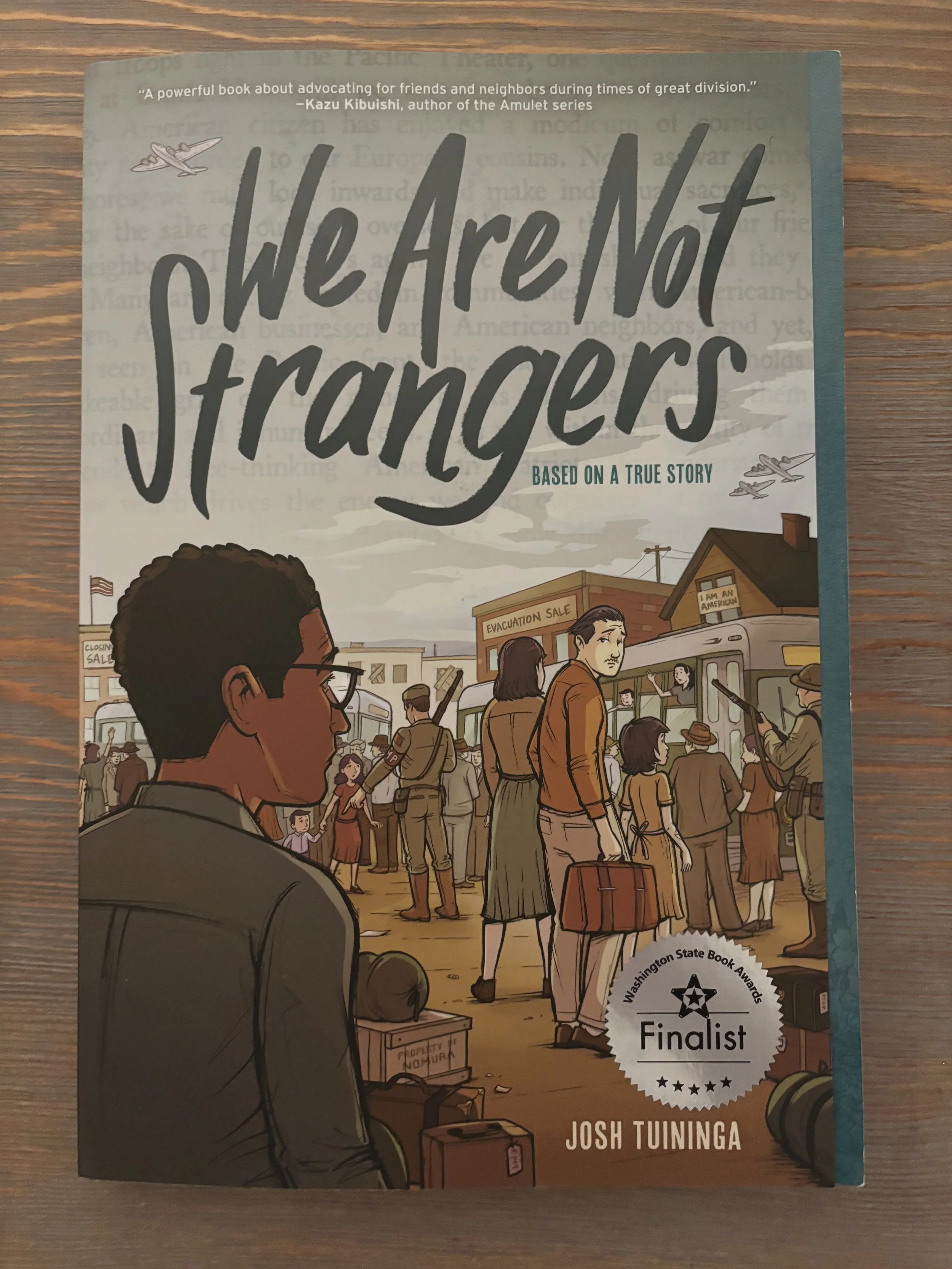We Are Not Strangers is an important read, with so many parallels between Japanese American incarceration after Pearl Harbor and the current mass deportation of immigrants by the current Republican Administration. This novel already compares two historical events—the Holocaust and the Japanese American incarceration—showing how the victim of one of these historical acts of extreme violence responds when they see another, similar act of violence. As we face yet another instance of history repeating itself, stories like these help us figure out what to do, how to help, and to find empathy and understanding. It also highlights injustice by showing how these same fears and unfair actions continue to resurface, just with a different (or often the same) target.
In an ever-changing political landscape here and abroad, I highly encourage you to keep reading stories like We Are Not Strangers to educate yourself on our history, examine your beliefs, and ultimately to take action.

